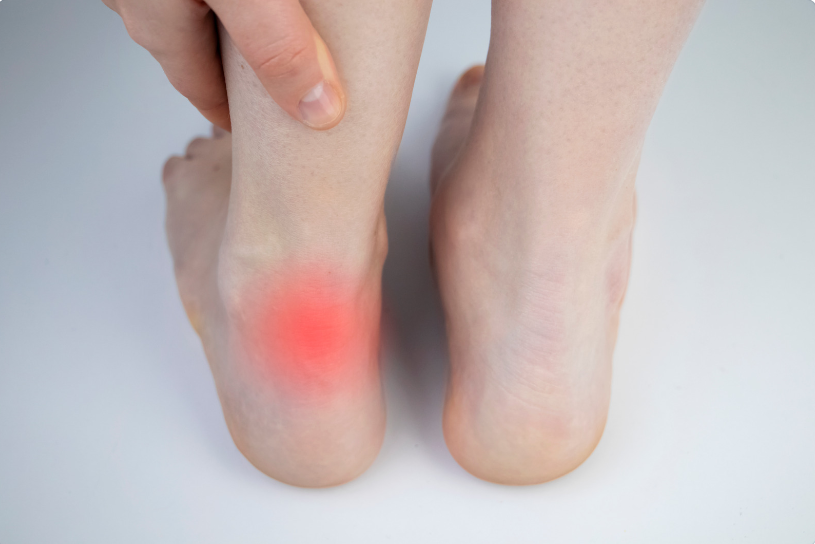
Did you know that the Achilles tendon is the strongest tendon that our body has? It’s true! It has to be, since it plays such an important role in our ability to walk, run, jump, and move. It’s located at the back of the leg and connects the calf muscles – or the gastrocnemius and soleus muscles – to the heel bone. All people use this tendon everyday, and those such as athletes use it even more at a higher intensity. With how much the average person relies on their lower body, heel, foot, and leg pain might not be new. However, with Achilles tendon injuries, addressing pain and other issues is an important step in preventing further injury.
You might be asking: why the Achilles tendon specifically?
Unfortunately, alongside being the strongest tendon, the Achilles tendon also happens to be the most commonly-injured in the lower body. Because this tendon is so imperative to our daily activities and movement, knowing the type of pain you experience in the area and when to seek out medical treatment is critical to maintaining your health.
There are two types of Achilles tendon injuries that you should know: chronic Achilles tendinitis and acute Achilles rupture.
Chronic Achilles Tendinitis
Chronic Achilles tendinitis is a common overuse injury. Basically, if the Achilles tendon becomes inflamed, the body responds by swelling and becoming painful or irritated. There are two types of Achilles tendonitis:
Non-insertional Achilles Tendonitis is found more often in younger, active people. Small tears begin to break the tendon down, causing pain, swelling, hardening, and thickening of the tendon.
Insertional Achilles Tendinitis originates from the lower tendon near the heel. This is where it attaches to the bone. Because of its proximity, bone spurs are more likely to form with this type of tendonitis. Insertional Achilles Tendonitis can be found in all ages and activity levels, and is caused in part by calf muscle tightness, which increases the stress on the tendon insertion.
Acute Achilles Rupture
An acute Achilles rupture is the worse of the two injuries. When ruptures occur, the Achilles tendon tears or separates in one or more places. It accounts for 20% of all large tendon ruptures, and many who have experienced this injury describe it as a “gunshot” sensation. You might hear a loud pop or crack, and then experience a sharp and persistent pain at your ankle and up the back of your leg. It is very common in athletes due to the high number of abrupt accelerations and decelerations. This is a serious injury and requires immediate medical attention.
Achilles rupture treatment may be nonoperative or operative. However, the type of treatment depends on the age, activity demands, and how long the patient has had the injury. Nonoperative treatments often include bracing or casting alongside rehabilitation. Operative treatments can include:
- Open end-to-end Achilles tendon repair
- Percutaneous Achilles tendon repair
- Reconstruction with VY advancement
- Flexor hallucis longus transfer +/- VY advancement of gastrocnemius
Achilles Tendon Injury Treatment in Louisville, KY
Approximately 25% of Achilles tendon injuries are misdiagnosed at initial presentation. However, if you have experienced severe or persistent heel and calf pain, you may have an Achilles tendon injury.
Remember that while the injury is more common in both consistent and episodic athletes, Achilles tendon injuries can happen to anyone! Conditions that weaken or cause joints, tendons, and muscles to degenerate like arthritis, natural age, or prior untreated injuries can also contribute to risk.
If you or someone you love has suffered an Achilles Tendon injury in the Louisville, Kentucky-area, board certified sports medicine physician Dr. Stacie Grossfeld at Orthopaedic Specialists PLLC can help. Orthopaedic Specialists PLLC is accepting new patients, and same day appointments are available. For additional information or to schedule an appointment, please contact Orthopaedic Specialists PLLC today at 502-212-2663.

Recent Comments